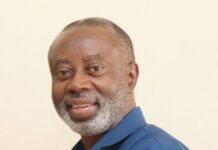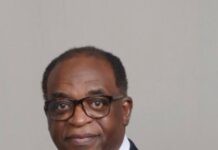This year, we are spending the holiday season in Niger to travel and see old friends and catch up with events in the country. We spent a lot of time with friends in the NGO – Alternative Citizen Spaces (Alternative Espace Citoyens) led by Moussa Tchangari. Ordinary people established it in 1994 to promote active citizenship in the construction of democracy through the articulation of voice and the organisation of citizenship action. It uses a multi-media approach publishing a newspaper, producing television documentaries and films and operating radio stations in Niamey, Agades, Zinder and Diffa. Its films are produced following the Sabido approach of researching themes, debating them with communities and writing the texts collectively before shooting. The plots of the films pass progressive social messages through directly confronting backward practices and proposing progressive alternatives.
Alternative is also very active in human rights advocacy and budget tracking. The day of our arrival, they had organised a public demonstration in conjunction with trade unions and other civil society organisations against the 2018 budget. As the French President, Emmanuel Macron was also visiting the country that day, security forces put up a massive show of force and stopped the demonstrations. Their major concern was that next year’s budget for the country is bound to increase the impact of austerity measures on the poorest sectors of Nigerien society. The budget cuts taxes for telecommunications and petroleum companies. To make up for the short fall in public revenue new taxes are to be imposed on fertilisers and agricultural implements. For the first time, locally produced grains are also going to be taxed in markets.
Alternative organised a seminar and public debate on Boko Haram and the war against insurgency. Moussa Tchangari had been accused of subversion and treason in 2015 when he published an article against the decision of the Niger Government to order all villagers and fishermen living along the shores of Lake Chad to vacate their villages on foot and within three days. All villagers found after three days were to be considered to be Boko Haram militants and shot on sight. It was estimated that hundreds of people died of thirst and exhaustion during the three-day trek and. It would be recalled that thousands of Nigerian fishermen working on the Niger shores were also affected by the measure. Moussa had argued that a more humane approach should have been used to move them out.
Y.Z Ya’u presented the research conducted by the Centre for Information Technology and Development (CITAD) on community resilience to the Boko Haram insurgency in North East Nigeria. He drew attention to significant differences between communities with high and low competence in organising resistance, planning and surveillance against the insurgency and emphasised that military force alone cannot end the insurgency if communities do not play their own role in organising resistance and resilience. At this level, the communities that have been most successful in demonstrating resilience have important lessons for others that have been less successful.
I presented the study and policy brief done by the Centre for Democracy and Development (CDD) on the imperative of developing a transitional justice approach for those implicated in the Boko Haram insurgency. The Armed Forces have created Operation Safe Corridor to enable Boko Haram militants who repent and change their ways to enter a deradicalisation programme and eventually return to their communities. Findings from the research by CDD show however that people are very opposed to the idea of former Boko Haram militants returning to their communities. They want them tried and jailed for their crimes. This type of sentiment is to be expected. The problem however is that our judicial system simply does not have the capacity to handle the trial of the tens of thousands of people who have been captured of surrendered. At the same time, if the Boko Haram militants are convinced that there is no form of amnesty in sight for them, they are likely to continue the war in the coming years. It is imperative that Nigeria develops a policy framework for some form of transitional justice that could lead to an end to the war.
Participants at the seminar raised issues about Niger’s own amnesty plan in which the government has given up to 31st December 2017 for all Boko Haram terrorists to surrender or face the “war to finish”, to be embarked upon from the first of January. So far, only 172 terrorists have surrendered and many participants expressed their concern that the time frame is simply too short and should be extended. Many people also expressed their concern that with all the foreign forces in the country from the French to the Americans, with their sophisticated drones and equipment, terrorists continue to attack with impunity.
We also took time to visit the Bilingual College established in 2013 based on an agreement between the Kano State and Niger Governments based in Niamey. The school has 600 students half of the, from Kano State and the other half from Niger Republic. Teaching and teaching is in both English and French. I spoke to many of the students from Kano and was pleased to see that they were very fluent in French. Very sadly, with the transition from Kwankwaso to Ganduje, the Kano State Government is no longer keeping its side of the bargain in terms of funding and supplies. I appeal to the Kano State Governor to rise above the political fray because the 300 Kano State students in the school are our citizens and they are going to be an asset for the State and indeed for Nigeria, which is surrendered by Francophone countries and so few Nigerians are fluent in French.
In Maradi, we visited the Maryam Abacha American University, which was not really impressive. The academic staff were all on leave but the report we got from the non-academic staff was that all the academic staff except in the French department were from Nigeria and all the students were also Nigerian. The university appeared to be a poorly funded Nigerian university for Nigerian students located in a neighbouring country where National University Commission standards were not applicable.
I need to stop writing at this point to rush off to Zinder, the capital of Damagaram to witness this year’s international wrestling competition, which is a very popular event in this country. One more point however.
Society Wedding
It was pleasing in Niamey to witness the wedding of Maryam and Sarah, daughters of Professors Antoinette and Mahamane Tidjani-Alou. The girls were born in Bordeaux, France where the three of us were doctoral students in the 1980s. Antoinette, a Jamaican has become a “Grande Dame” of the Sahel and the girls, women rather, have become globalists working in France and proud of their triple Nigerien, French and Jamaican citizenship. I wish them happy marital life.



